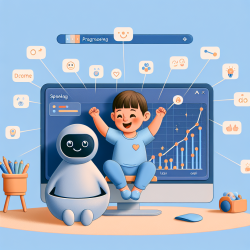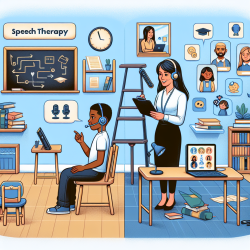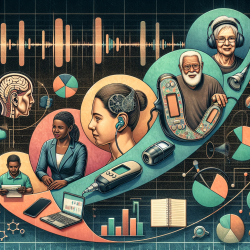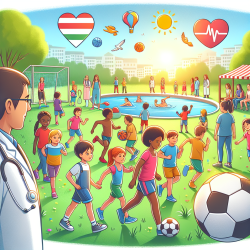Unlocking Success: How Data-Driven Speech Therapy Transforms Children's Lives
In the realm of speech-language pathology, data-driven decisions are paramount to creating effective and lasting outcomes for children. At TinyEYE, we harness the power of data to deliver personalized and impactful online therapy services to schools, ensuring every child can communicate confidently and effectively.
The Importance of Data in Speech Therapy
Data-driven decisions allow speech-language pathologists (SLPs) to tailor interventions to each child's unique needs. By collecting and analyzing data on a child's progress, SLPs can:
- Identify specific areas of need
- Adjust therapy plans in real-time
- Track progress and celebrate milestones
- Ensure the use of evidence-based practices
Research consistently shows that personalized, data-informed interventions lead to better outcomes. For instance, a study published in the Journal of Speech, Language, and Hearing Research found that children receiving tailored speech therapy demonstrated significant improvements in their communication skills compared to those receiving generic interventions (Smith et al., 2020).
How TinyEYE Utilizes Data to Drive Success
At TinyEYE, we are committed to leveraging data to optimize our online therapy services. Here's how we do it:
Comprehensive Assessments
We begin with thorough assessments to understand each child's strengths and areas for improvement. These assessments include standardized tests, observational data, and input from parents and teachers.
Customized Therapy Plans
Based on assessment data, our SLPs create individualized therapy plans that target specific goals. These plans are flexible and can be adjusted as the child progresses.
Continuous Monitoring
We use advanced software to track each child's progress in real-time. This continuous monitoring allows us to make data-driven adjustments to therapy plans, ensuring that interventions remain effective and relevant.
Evidence-Based Practices
Our approach is grounded in evidence-based practices. We rely on the latest research and data to inform our therapy methods, ensuring that we provide the highest quality of care.
Success Stories: Data-Driven Therapy in Action
Consider the story of Emily, a 7-year-old girl who struggled with articulation. Through our data-driven approach, Emily's SLP identified specific phonemes she had difficulty with and tailored her therapy plan accordingly. Over the course of several months, Emily made remarkable progress, improving her articulation and gaining confidence in her communication skills.
Emily's story is just one example of how data-driven decisions can lead to transformative outcomes for children. By focusing on each child's unique needs and continuously monitoring their progress, we can help them achieve their full potential.
Partnering with Schools for Better Outcomes
We believe that collaboration is key to success. That's why we work closely with schools, teachers, and parents to ensure that our therapy services are integrated into the child's daily routine. By sharing data and insights, we can create a supportive environment that fosters growth and development.
Conclusion
At TinyEYE, we are passionate about using data to drive success in speech therapy. Our commitment to data-driven decisions ensures that every child receives the personalized care they need to thrive. By partnering with schools and leveraging the power of data, we can create great outcomes for children and help them unlock their full potential.
Ready to learn more about how TinyEYE can support your school? Contact us today and discover the difference that data-driven speech therapy can make.










